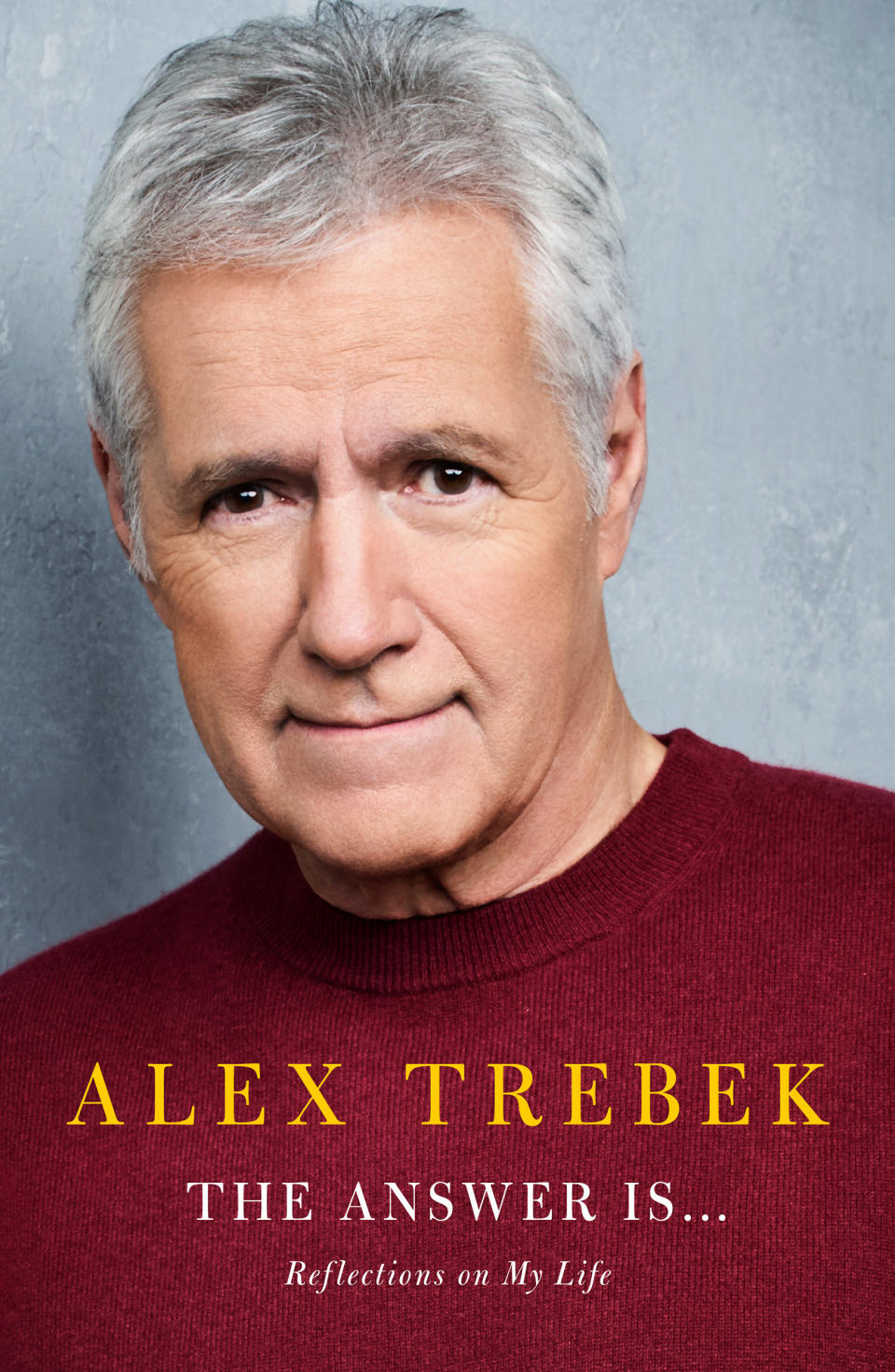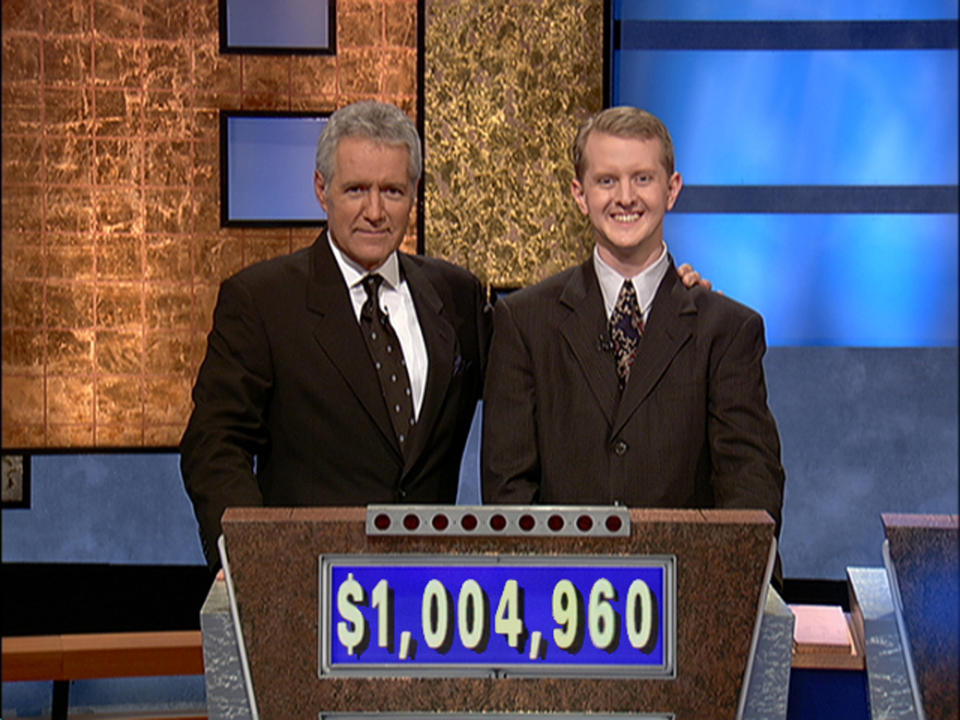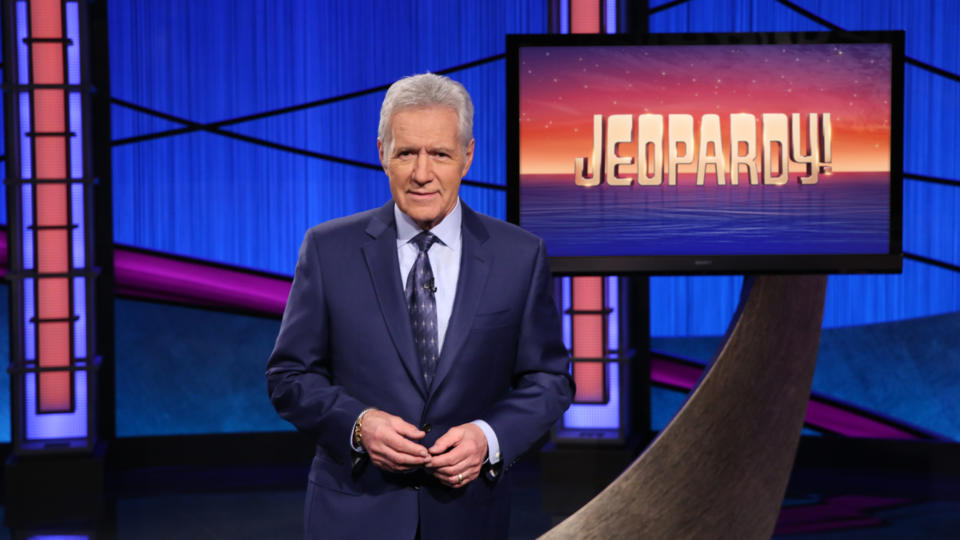How Alex Trebek wants to be remembered — and other revelations from his new book
This new memoir is a collection of personal anecdotes from the longtime host of “Jeopardy!”
What is Alex Trebek’s “The Answer Is ... Reflections on My Life”?
The beloved quiz-show host resisted past requests to share his life story, but decided to write the book after announcing his pancreatic cancer diagnosis in 2019 and being moved by the outpouring of support from fans.
Trebek, who turns 80 Wednesday, has plenty to say about family, health and a storied career that includes 36 years at the helm of "Jeopardy!" — here are nine revelations from “The Answer Is."
Trebek was in his 40s when he discovered he had a half brother.
After Trebek’s parents divorced, his mother had a child with another man, and gave the child up for adoption. “I didn’t know I had a half brother until shortly after I started hosting ‘Jeopardy!’” he writes. “He and I have communicated over the years, but we are not close. Because of the way things happened, I had kind of a resentment for my mother. But we settled all that before she died — long before she died."

Trebek’s meeting with Queen Elizabeth II was memorable — for him, at least.
In 1967, Trebek hosted a star-studded variety show for the CBC in honor of Canada’s centennial year, with Queen Elizabeth and Prince Philip in attendance. “The Queen got to me and said, ‘Good show. Please tell me your name, and where you are from,’” he recalls. As Queen Elizabeth greeted Trebek, Prince Philip had paused 50 feet behind, so she chatted with Trebek for about five minutes while waiting for her husband to catch up. The next day, as the royal couple approached Trebek at another centennial show, he thought, “Here comes my new best friend. I wonder what we’ll talk about today?” However the queen simply said, “Good show. Please tell me your name, and where you are from.”
Trebek’s one experience with recreational drugs was “unintentional.”
Shortly after moving to Los Angeles, Trebek was invited to a dinner party in Malibu, where he helped himself to some chocolate brownies. “I had four or five of them,” he remembers. “I did not realize they were hash brownies. Mr. Naive here. The party was on a Friday night. The drugs knocked me out so much I spent the weekend laid out in their guest bedroom and didn’t leave their home until Monday morning.”

He teared up when Ken Jennings’ legendary winning streak ended in 2004.
“There was definitely a sadness,” he writes. “I had tears in my eyes. It just all happened so quickly. Ken lost. I said something like, ‘Ken, you’re going away with a lot of money’ and, to the viewers at home, ‘We’ll see you tomorrow.’ The show ended. I remember thinking, ‘Ken’s gone. My buddy. My pal. This was getting to be The Ken and Alex Show.’”
When “Jeopardy!” eliminated the five-game limit on contestants in 2003, Trebek says the show’s supervising producers worried, “What if you got a contestant on a hot streak who was unlikable, who the audience couldn’t stand to watch?” However, “We decided to take a chance, and it was probably the best thing that happened to the show.”
Trebek “loved” Will Ferrell’s impression of him on “Saturday Night Live.”
However, his favorite impersonation was Eugene Levy’s on Canadian sketch comedy show “SCTV.” “He looked more the part than Will did. He had the dark bushy hair and the black mustache.”
He believes “Jeopardy!” has endured because of “the comfort that it brings.”
“Viewers have gotten used to having me there, not so much as a showbiz personality but as an uncle,” he writes. “I’m part of the family more than an outside celebrity who comes into your home to entertain you. They find me comforting and reassuring as opposed to being impressed by me. It’s not that kind of thing. I’m a secondtier celebrity.”

He’s been “ready to pack it in” at times.
“I don’t think the will to survive is a constant,” he writes. “I think there are moments — and there are certainly moments in my life — when that will to survive disappears and I’m ready to pack it in. Because I understand that death is part of life. And I’ve lived a long life. If I were in my twenties with years ahead of me, I might feel differently. But when you’re about to turn eighty it’s not like you’re missing out.”
Trebek wants to change how people talk about cancer.
“I don’t like to use the terms battling or fighting when talking about cancer,” he writes. “It suggests that there are only two outcomes: ‘winning’ and ‘losing.’ If you don’t get well, then you are a ‘loser.’ If you have decided to stop treatment, you have ‘given up.’ That’s nonsense.”
He’s “not afraid of dying.”
“One thing they’re not going to say at my funeral as part of the eulogy is ‘He was taken from us too soon.’ I’m about to turn eighty. I’ve lived a good, full life, and I’m nearing the end of it. I know that.”
Trebek is often asked how he’d like to be remembered.
“I suppose if I had to answer I would say I’d like to be remembered first of all as a good and loving husband and father, and also as a decent man who did his best to help people perform at their best,” he writes. “Because that was my job.”

